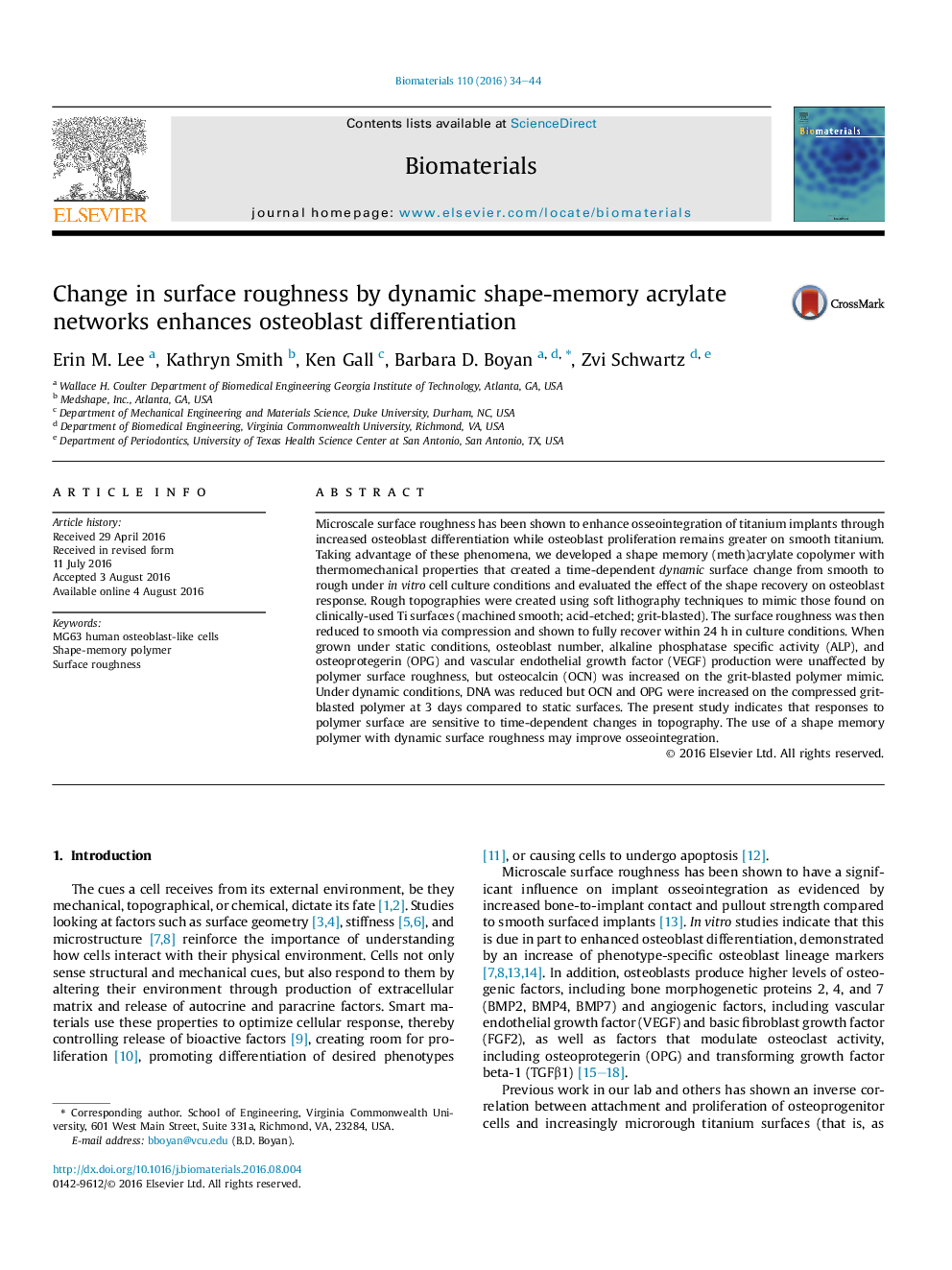| کد مقاله | کد نشریه | سال انتشار | مقاله انگلیسی | نسخه تمام متن |
|---|---|---|---|---|
| 4752473 | 1416157 | 2016 | 11 صفحه PDF | دانلود رایگان |
Microscale surface roughness has been shown to enhance osseointegration of titanium implants through increased osteoblast differentiation while osteoblast proliferation remains greater on smooth titanium. Taking advantage of these phenomena, we developed a shape memory (meth)acrylate copolymer with thermomechanical properties that created a time-dependent dynamic surface change from smooth to rough under in vitro cell culture conditions and evaluated the effect of the shape recovery on osteoblast response. Rough topographies were created using soft lithography techniques to mimic those found on clinically-used Ti surfaces (machined smooth; acid-etched; grit-blasted). The surface roughness was then reduced to smooth via compression and shown to fully recover within 24 h in culture conditions. When grown under static conditions, osteoblast number, alkaline phosphatase specific activity (ALP), and osteoprotegerin (OPG) and vascular endothelial growth factor (VEGF) production were unaffected by polymer surface roughness, but osteocalcin (OCN) was increased on the grit-blasted polymer mimic. Under dynamic conditions, DNA was reduced but OCN and OPG were increased on the compressed grit-blasted polymer at 3 days compared to static surfaces. The present study indicates that responses to polymer surface are sensitive to time-dependent changes in topography. The use of a shape memory polymer with dynamic surface roughness may improve osseointegration.
Journal: Biomaterials - Volume 110, December 2016, Pages 34-44
